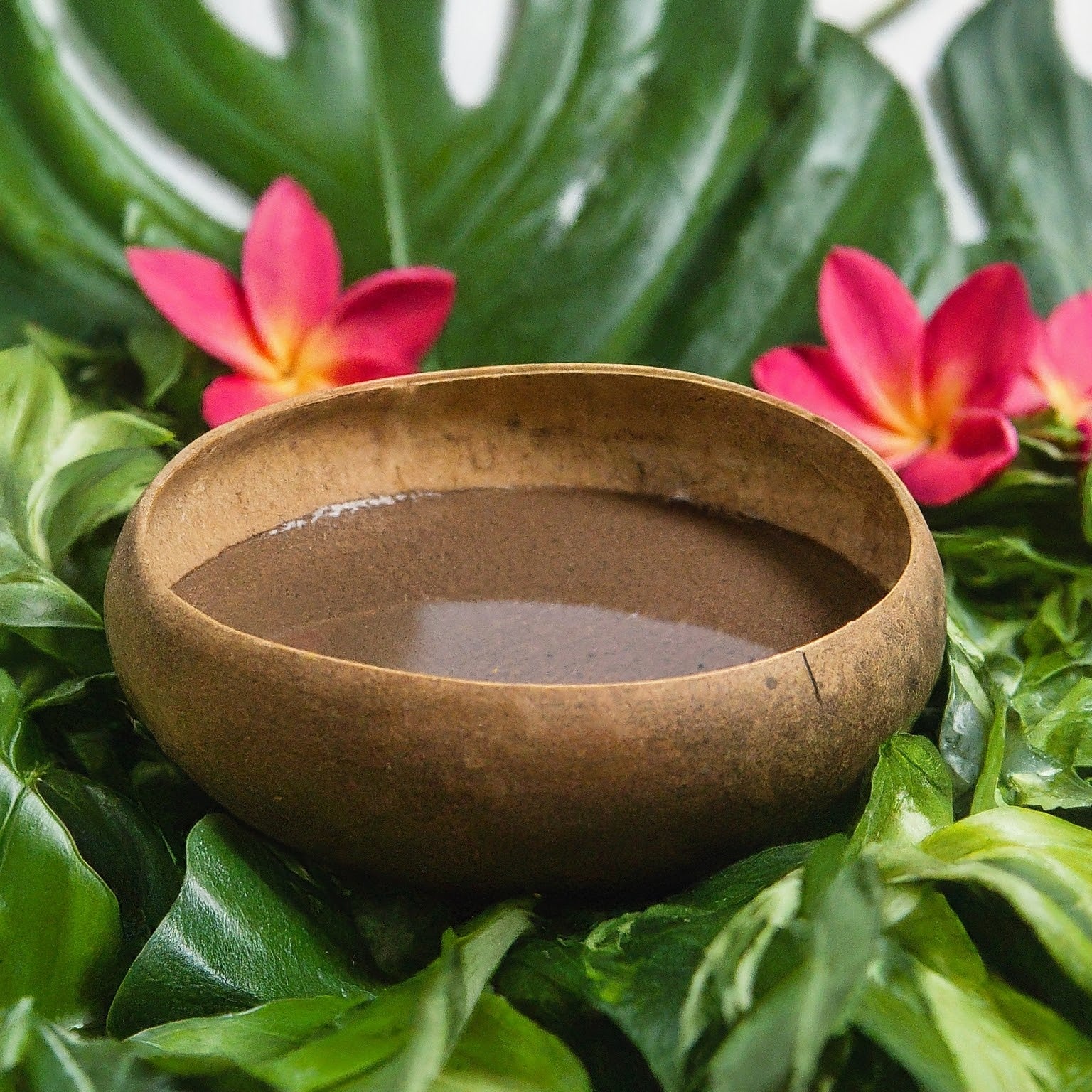For Faster Shipping use Amazon for delivery before Christmas
For Faster Shipping use Amazon for delivery before Christmas

The Art of Kava Tasting: Appreciating the Unique Flavor Profiles
November 12, 2024 2 min read
Think kava is just a muddy, earthy drink? Think again! While kava might not be everyone's cup of tea (or bowl, in this case), there's a whole world of unique flavor profiles to discover if you know what to look for. In this post, we'll delve into the art of kava tasting, exploring the nuances of flavor, aroma, and effects that make each kava experience a unique journey.
Beyond the First Sip: Kava's Flavor Complexity
While the initial taste of kava might be a bit surprising for newcomers, with its earthy, bitter notes, there's much more to uncover beneath the surface. Different kava varieties, known as cultivars, offer a wide range of flavors, from creamy and nutty to peppery and citrusy.
Noble kava varieties are often described as having a smoother, more balanced flavor profile with subtle hints of sweetness or spice. Tudei kava, on the other hand, can be more pungent and bitter, with a less desirable aftertaste.
The Art of Kava Preparation
The way kava is prepared can significantly influence its flavor. Traditional preparation methods, such as using a kava strainer and mixing the kava powder with water in a kava bowl, can produce a more authentic and complex flavor profile.
Other factors, such as the age of the kava root, the water temperature, and the amount of kava used, can also affect the taste. Experimenting with different preparation techniques can help you discover the nuances of kava's flavor and find your preferred method.
Kava Tasting: Engaging Your Senses
Kava tasting is not just about the taste; it's a multi-sensory experience. Here's how to engage all your senses when exploring kava's flavor profile:
- Sight: Observe the color of the kava. It can range from light tan to dark brown, depending on the variety and preparation method.
- Smell: Inhale the aroma of the kava. Some kavas have earthy, woody scents, while others might offer hints of citrus, pepper, or other spices.
- Taste: Take a small sip of kava and let it linger in your mouth. Pay attention to the initial flavors, the mid-palate, and the aftertaste. Notice any subtle nuances or complexities.
- Feel: Notice the physical sensations that kava produces in your body. Do you feel a tingling sensation in your mouth? A sense of relaxation in your muscles? These physical cues can enhance your overall kava experience.
Exploring Kava's Diverse Flavor Landscape
The world of kava is vast and diverse, with countless cultivars offering unique flavor profiles. Some popular kava varieties include:
- Borogu: Known for its heavy, sedating effects and earthy flavor.
- Melo Melo: Characterized by its uplifting and euphoric effects, with a smoother, more pleasant taste.
- Loa Waka: A popular Fijian kava with a balanced flavor profile and relaxing effects.
- Isa: A Tongan kava known for its strong, heady effects and earthy, peppery flavor.
- Vanuatu kava: Often described as having a creamy, nutty flavor with a pleasant aftertaste.
By exploring different kava varieties, you can discover your personal preferences and expand your kava palate.
Kava Tasting: A Journey of Discovery
Kava tasting is a journey of discovery, a chance to explore the complex flavors and unique effects of this ancient beverage. Whether you're a seasoned kava enthusiast or a curious newcomer, take the time to savor each sip, engage your senses, and appreciate the rich tapestry of flavors that kava has to offer.
#kavaculture #kavaceremony #kavabar #kavacommunity #kavakava #kavaroot #kavatasting #flavorprofile #kavavarieties #noblekava
Leave a comment
Disclaimer:
The views and opinions expressed in this blog post are those of the author and do not necessarily reflect the official policy or position of Wakacon Kava. Any content provided is for informational purposes only and is not intended as a substitute for professional advice. Wakacon Kava is not responsible for any errors or omissions, or for the results obtained from the use of this information. Readers are encouraged to do their own research and consult with qualified professionals before making any decisions based on the information provided in this blog.
Affiliate Disclosure:
This blog post may contain affiliate links, which means that Wakacon Kava may earn a commission if you click on a link and make a purchase. This comes at no additional cost to you.
Copyright Notice:
All content on this blog is the property of Wakacon Kava and is protected by copyright laws. You may not reproduce, distribute, or transmit any content from this blog without the express written consent of Wakacon Kava.
